
Welches Whey Protein ist am besten zum Abnehmen geeignet?
Losing weight is already a difficult game. Whether you’re new to the protein scene or not. Choosing the right shake can be a little confusing, especially if you’re trying to cut calories and lose some weight.
In this article, we want to challenge whey protein head-on and find out how and if it can help you lose weight. We don’t use anything other than science to back this up, so no exaggerated claims, that’s not how it works at Protein Works.
To give you an idea of the best whey protein options available on the market today, we’ve rounded up the top performing whey protein powders below. Don’t forget to check out some of our favorite weight loss blends at the end of the article too.
Whey protein options for weight loss
Whey protein concentrate
All whey products are made from milk. What sets whey protein concentrate apart from others is its refinement. Instead of being heated, whey concentrate is microfiltered so that it retains its pure concentration of amino acids while remaining smooth and silky in taste. Whey concentrate is probably the most popular type of protein on the market today.
Whey protein isolates
Whey Protein Isolate contains approximately 90% protein content, making it an incredibly lean powder. The low carb, calorie, and fat content while being high in protein is one of the main reasons it is so popular in the weight loss community. Whey isolate undergoes a process called “cross-flow microfiltration.” The protein is separated from fat, cholesterol, lactose and carbohydrates and an ultra-pure protein shake is produced.
Does whey protein work for weight loss?
Now to the real reason you’re here. How does whey protein actually help with weight loss? We’ve done all the research for you, so sit back, relax and read on, but be warned, you’ll want to add a bag to your cart before you’re done. Good Work: Protein Works carries some of the best whey protein shakes on the market. Anyway, enough of the sales talk, we’ll let our products do the talking, check out below.
- Whey protein reduces hunger and appetite
- Whey protein can stimulate metabolism
- Whey protein helps with calorie deficits
Whey protein has much more benefits than just weight loss, if you are interested, here is an article to keep you entertained “Health Benefits of Whey Protein”.
Whey protein reduces hunger and appetite
Whey protein is known to help you feel fuller for longer (Westerterp et al. 2004). A 2010 study analyzed food intake after drinking a whey protein shake. Half of the subjects received a placebo (zero calories and zero protein), while the other half received a shake that was either 13%, 25%, or 50% protein. The subjects were given a noodle-based lunch 90 minutes after consuming their shake, with results showing that those who took the protein shake ate much less. This effect was more pronounced in men than women, who ate an average of 450 calories less than those who took the placebo shake (Astbury et al. 2010).
Studies have also found that consuming a protein shake increases appetite-stimulating hormones such as GLP-1, but also reduces levels of the hunger hormone ghrelin (Lejeune et al. 2006), which is one of the reasons for this finding.
In another study, Leidy et al. (2011) examined the effects of a high-protein diet on appetite and satiety in overweight and obese men. Here, participants were recommended to increase their protein intake to 25% of total calories, which helped reduce appetite by an average of 60% and nighttime snacking by 50%.
At this point, it is important to note that when consuming a weight loss shake, you should double check the ingredients. As if choosing the wrong protein shake could actually leave you in a calorie surplus rather than a calorie deficit, the exact opposite of what you want.
Whey protein can stimulate metabolism
Supplementing your diet with whey protein shakes is an easy, cost-effective way to increase your protein intake for the day. When it comes to weight loss, you may have heard a few phrases, one of which is metabolism.
For those who aren’t aware, metabolism is basically the process by which your body converts what you eat and drink into energy. The faster your metabolism, the more calories you burn and prevents your body from storing energy as fat (Ashtary et al. 2017).
Studies have concluded that high protein intake throughout the day boosts metabolism and helps burn more calories than usual (Veldhorst et al. 2009). One of the reasons proteins can boost metabolism is the ability of proteins to promote the development of lean muscle mass, especially during resistance training.
For example, having more muscle mass requires more maintenance. Studies have shown that 10 pounds of muscle would burn about 50 calories in a day, while 10 pounds of fat would burn about 20 calories (fonseca et al. 2018).
One term that individuals do not associate with whey protein consumption is its thermic effect. Keeping TEF short means the body uses calories to easily digest and break down the food you eat.
Unfortunately, this doesn’t mean you’ll lose weight while you eat (that would be a dream), it just means your body processes fewer calories because they’re already being used up, so less can be stored.
The fewer calories that can be absorbed by the body, the more calories the body has in that particular calorie deficit needed for weight loss. Although there are no specific figures on the TEF effect of protein, it is well documented that protein has a much higher thermic effect than other macronutrients such as carbohydrates and fats (Westerterp et al. 2004).
Whey protein helps with a calorie deficit
When you’re trying to lose weight, there’s one basic principle: you have to be in a calorie deficit. This means you simply need to expend more calories than you consume. This allows your body to use its fat stores to create energy for survival, and this is how you start to lose weight. It may sound simple, but some people forget rule number 1.
You could eat the healthiest of meals, do intense exercise, but if you’re not in a calorie deficit, you won’t lose weight at all. As we mentioned above, a high-protein diet can help reduce hunger hormones, which in turn prevents you from snacking, which in turn helps with your calorie deficit. Whey protein has also been shown to reduce insulin and blood sugar levels and regulate them to a constant level (Patel, 2015). When blood sugar levels drop, it can cause your body to crave sugary or fatty foods.
Learning about how we actually lose weight should be your first step when it comes to getting slim for summer – The Basics of Weight Loss article explains in detail what you need to do to support your fitness journey.
How to get enough protein through your diet
There’s no denying that you can of course get all of your protein and macronutrient needs from the food we eat, but if weight loss is your main goal, then hitting a certain number is almost impossible without the help of some protein powders.
Low fat, low carb, low sugar, low calorie but high in protein is why they have become so popular in the hunt for the dream body. Not to mention the time and money saved by consuming a shake instead of preparing a full protein-packed meal. This is really a no-brainer.
However, choosing the best protein shake that works best for your diet should be at the top of your checklist. Luckily for you, we at Protein Works have done just that and compiled some of our favorite protein shakes for weight loss below.
Please note that this is not a hierarchy of products, just a selection of some of our favorites.
Our best whey protein shakes for losing weight
1) Diet Whey Protein Isolate 90
2) Diet Meal Replacement Extreme
3) Clear Diet Whey Protein Isolate
1) Diet Whey Protein Isolate 90
What is Diet Whey Protein Isolate 90?
Diet Whey Protein Isolate 90 is as pure as it gets. Nothing but premium isolate protein powder with an incredible 23g protein, 0.3g fat and 0.5g carbohydrates and less than 100 calories per 25g serving. It is specifically designed for people who are dieting and want to increase their protein intake without the dreaded additives that often accompany protein shakes.
Diet Whey Protein Isolate 90 is incredibly pure and, as the name suggests, contains 90% protein, making it the ideal shake for anyone on a calorie-restricted diet.
This premium shake leaves nothing to be desired and thanks to its production filtration it has a complete amino acid profile with the essential 3g of leucine in every scoop.
Available flavors: Banana Smooth, Caramel Candy, Chocolate Mint Brownie, Chocolate Peanut Cookie, Chocolate Silk, Cookies ’n‘ Cream, Strawberry Cream, Strawberry & White Chocolate, Vanilla Cream and a flavorless alternative.
2) Diet Meal Replacement Extreme
What is Diet Meal Replacement Extreme?
Diet Meal Replacement is a nutrient-dense, complete drinking meal designed specifically for people on a weight loss diet. As the name suggests, it is used as a replacement for certain meals throughout the day. However, it still provides your body with a variety of macronutrients, vitamins, minerals and popular weight loss supplements.
Each shake contains the ultimate 24g of protein, 24g of carbohydrates and just 214 calories, blended with a comprehensive vitamin and mineral blend, konjac glucomannan, CLA and even green tea extract.
This means a combination of the best weight loss ingredients in a very low calorie shake. On average, a meal contains between 500 and 700 calories, while our meal replacement contains only 214 calories. This will help you maintain the calorie deficit that is so important for weight loss, while also providing your body with a variety of vitamins and minerals necessary for overall health and well-being.
Available Flavors: Banana Smooth Sundae, Caramel Candy, Caramel Latte, Chocolate Coconut, Chocolate Hazelnut Heaven, Chocolate Mint Brownie, Chocolate Peanut Cookie, Digestive Chocolate Cookie, Chocolate Silk, Cookies ’n‘ Cream, Dark Chocolate & Raspberry,, Chocolate caramel biscuit, raspberry mochi, salted caramel, speculoos cream, strawberry cream and vanilla cream and white chocolate peanut sundae.
Would you like to learn a little more about meal replacement shakes and drinkable meals? Then click here: “What are meal replacement shakes?”
3) Clear Diet Whey Protein Isolate
Clear Diet Whey Protein Isolate is a refreshing, juice-like protein shake made with ultra high quality hydrolyzed protein isolate. Clean and clear, each shake delivers 20g of protein with all the benefits of whey protein added. Light in flavor and low in calories, each shake contains 82 calories or less. Each shake also contains 100% of the recommended amounts of vitamins B6 and B12. These vitamins have been scientifically proven to help combat fatigue and support the immune system.
Refreshing, fruity and with a liquid consistency, this shake is ideal for anyone looking for a high protein, low calorie shake without the milky texture. It’s perfect for any time of day, just add water and shake.
The low calorie content helps keep your body in a calorie deficit while the taste helps you think about the finer things in life that you’ve cut out of your diet, but don’t worry, these shakes taste pretty good too.
Available flavors: Mango & Orange, Pina Colada Classic, Strawberry, Strawberry Mojito, Sour Cherry & Apple, Tropical Fruit Punch & Watermelon.
4) Diet Whey Complex Extreme
What is Diet Whey Complex Extreme?
Diet Whey Complex Extreme is the ultimate low calorie, low sugar, low fat protein shake with high nutritional value and crazy flavors. Part of our Extreme range, this delicious tasting shake contains 21.5g protein, 0.6g sugar and just over 100 calories per serving.
The shake provides your body with a premium protein blend that contains both whey concentrate and whey isolate, so you get the best of both worlds, plus an addition of weight loss ingredients including a tea blend (matcha green tea, white tea extract & black tea extract), vitamin and mineral blend, konjac glucomannan, acetyl-L-carnitine and CLA.
This intense blend of Diet Whey Complex Extreme is one of the main reasons it’s a bestseller at Protein Works, as it allows you to consume the best weight loss ingredients in one shake, saving you time and money to get some PB’s in the Smashing the gym. Losing weight is made easy with this premium whey protein shake.
Available flavors: Banana Smooth, Chocolate Silk and Strawberry Cream.
Sources:
Lejeune MP, Westerterp KR, Adam TC, Luscombe-Marsh ND, Westerterp-Plantenga MS.. (2006). Ghrelin and glucagon-like peptide 1 concentrations, 24-h satiety, and energy and substrate during a high-protein diet and measured in a respiration chamber. The American Journal Of Clinical Nutrition. 1 (83), p89-84.
Astbury NM, Stevenson EJ, Morris P, Taylor MA, Macdonald IA. Dose-response effect of a whey protein preload on within-day energy intake in lean subjects. Br J Nutr. 2010 Sep 28:1-10.
Westerterp KR. Diet-induced thermogenesis. Nutr Metab (Lond). 2004;1(1):5. Published 2004 Aug 18. doi:10.1186/1743-7075-1-5.
Leidy HJ, Tang M, Armstrong CL, Martin CB, Campbell WW. (2011). The effects of consuming frequent, higher protein meals on appetite and satiety during weight loss in overweight/obese men.. Obiesity Silver Medal Medical. 4 (19), p118-124.
Ashtary-Larky D, Ghanavati M, Lamuchi-Deli N, et al. Rapid Weight Loss vs. Slow Weight Loss: Which is More Effective on Body Composition and Metabolic Risk Factors?. Int J Endocrinol Metab. 2017;15(3):e13249. Published 2017 May 17. doi:10.5812/ijem.13249.
Veldhorst MA1, Westerterp-Plantenga MS, Westerterp KR.. (2009). Gluconeogenesis and energy expenditure after a high-protein, carbohydrate-free diet. The American Journal Of Clinical Nutrition. 1 (83), p519-26.
Danielle CristinaFonsecaa, Priscila Salaa, Beatrizde Azevedo Muner Ferreiraa, Jessica Reisa Raquel Susana Torrin hasa, Itai Bendavid, Dan Linetzky Waitzberga. (2018). Body weight control and energy expenditure. Clinical Nutrition Experimental. 20(1), p55-59.
Westerterp KR. Diet-induced thermogenesis. Nutr Metab (Lond). 2004;1(1):5. Published 2004 Aug 18. doi:10.1186/1743-7075-1-5
Patel S. Emerging trends in nutraceutical applications of whey protein and its derivatives. J Food Sci Technol. 2015;52(11):6847–6858. doi:10.1007/s13197-015-1894-0


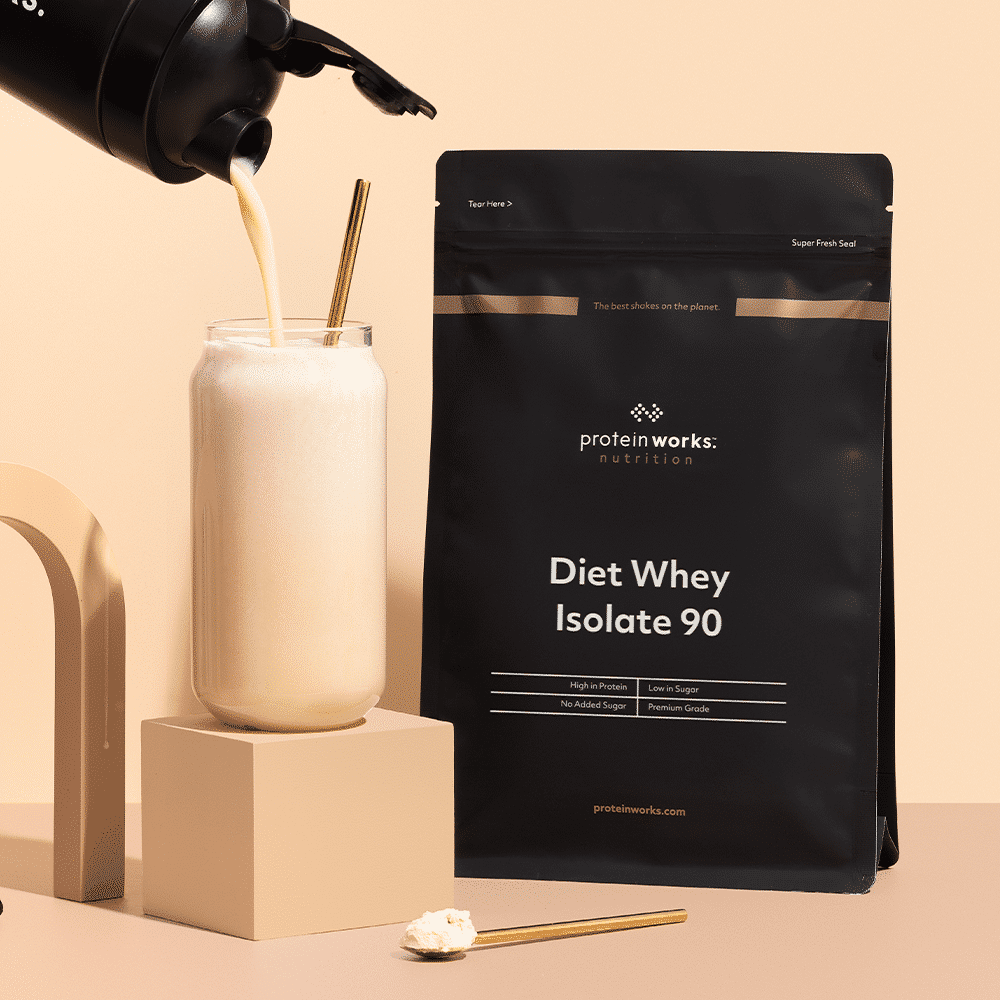



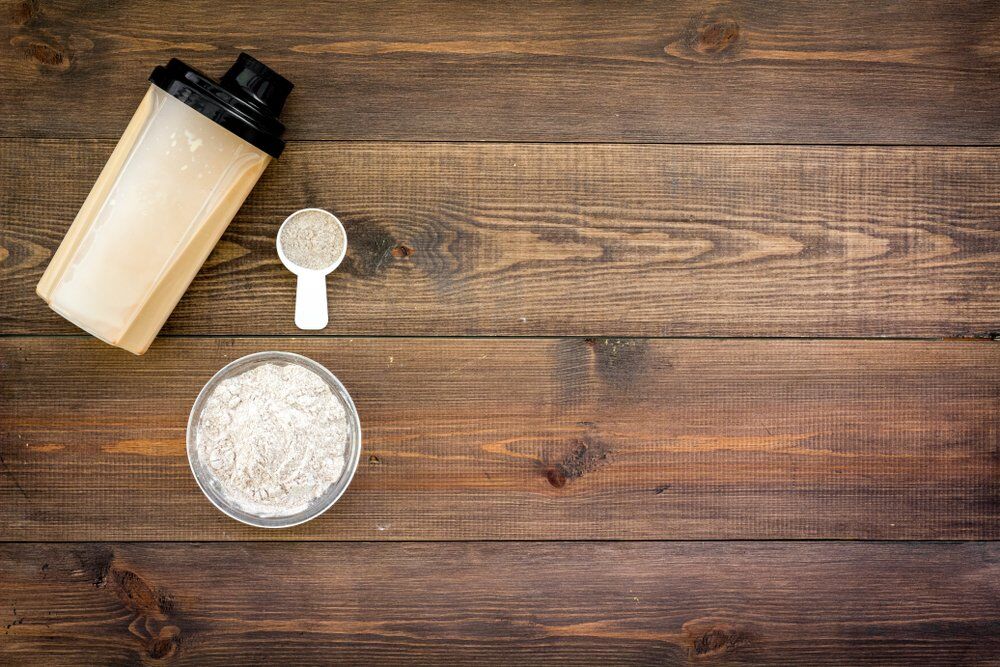
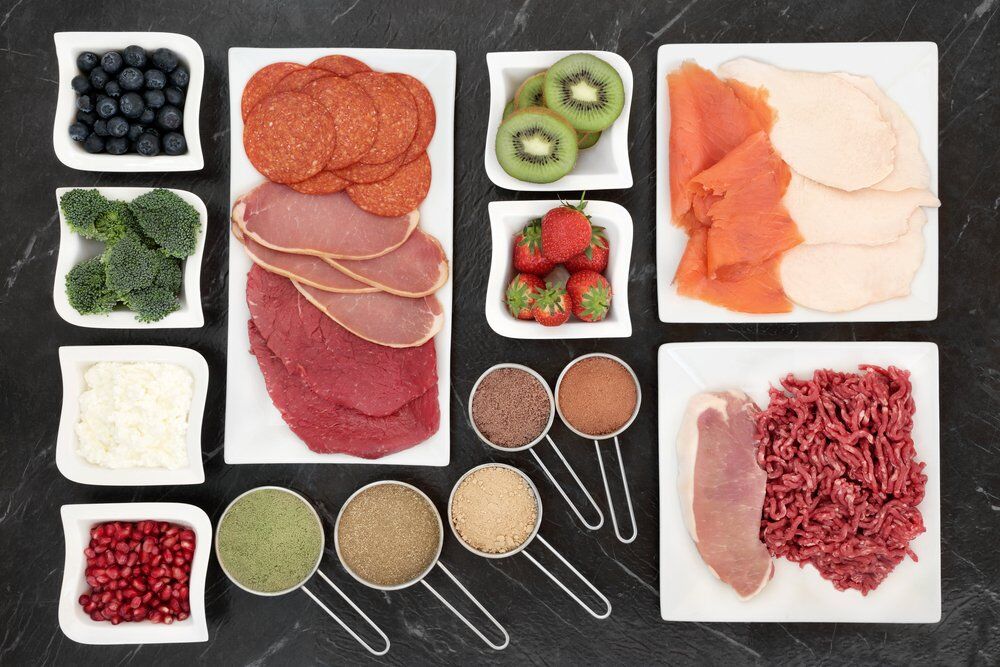
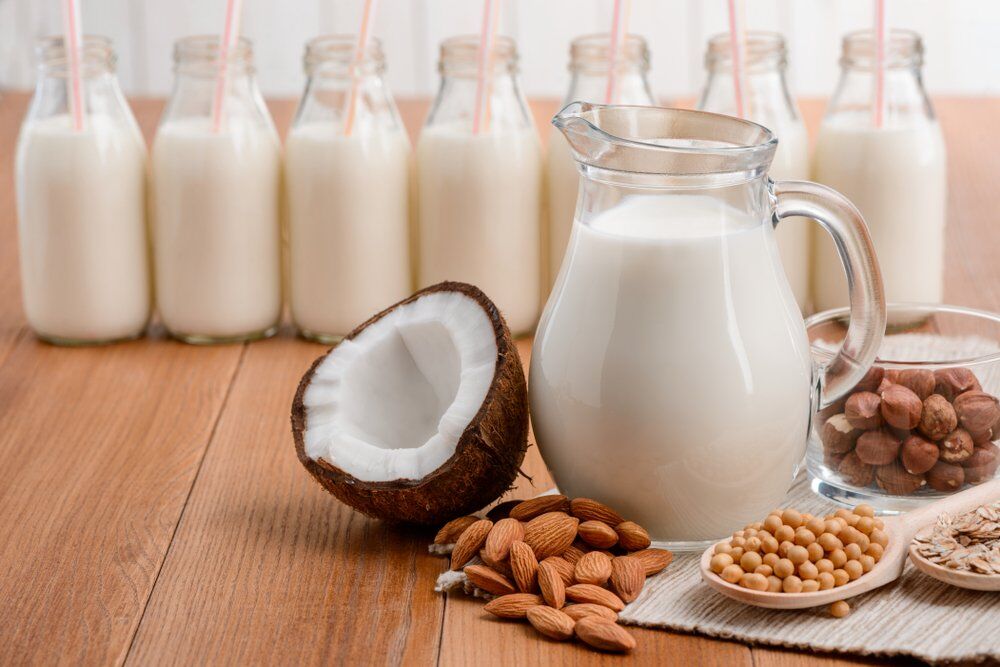
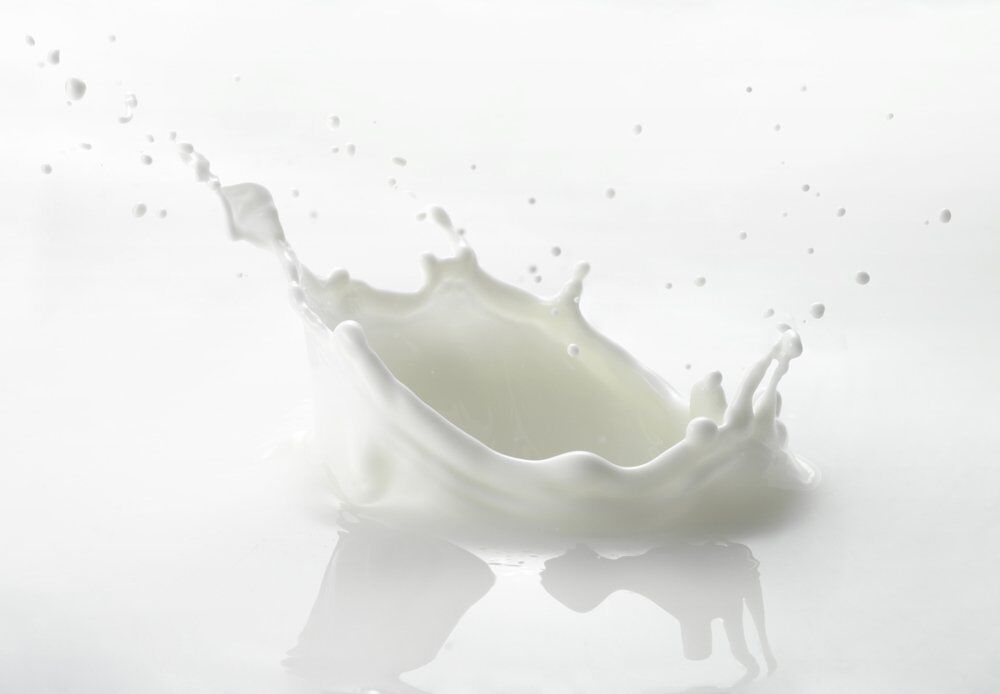
Noch keine Kommentare!